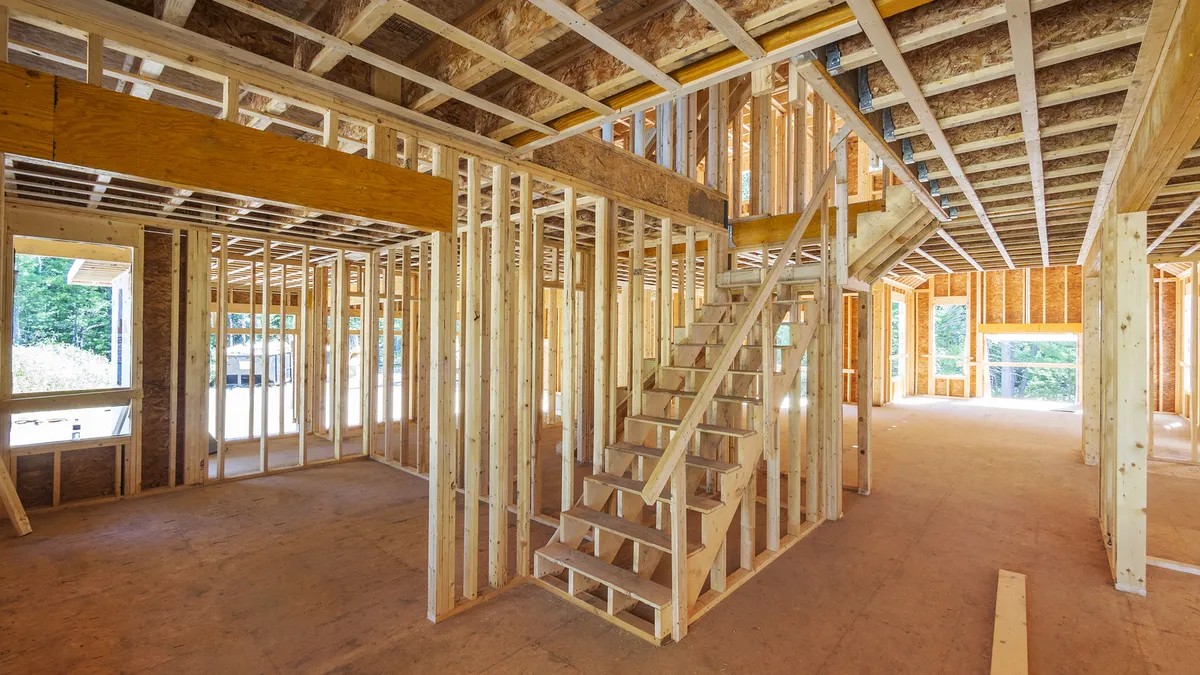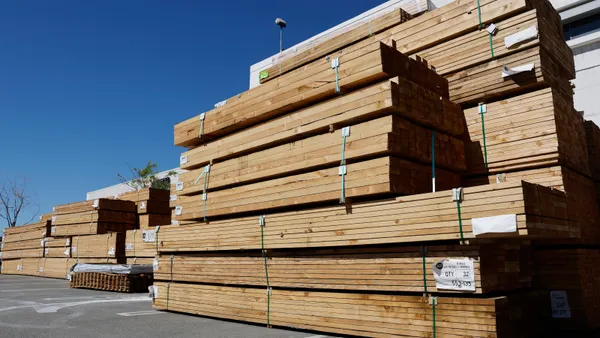Dive Brief:
-
The U.S. Department of Commerce has announced a preliminary average 20% import tax on Canadian softwood lumber, with rates from 3.02% to 24.12% per producer, Reuters reported. The move is expected to generate $1 billion in revenue on imports worth roughly $5 billion annually.
-
Intended to help U.S. lumber producers compete, the decision follows an investigation by the U.S. International Trade Commission as to whether Canadian producers' sourcing timber from government-owned land allows them to procure product at a lower cost than U.S. producers, which typically source from private land.
- The duties weren’t as high as analysts had expected, according to Bloomberg. However, the U.S. may also tack on antidumping duties if allegations that Canadian producers are selling product at below-market rates in the U.S. proves out.
Dive Insight:
Monday’s announcement is the latest in the decades-long trade dispute concerning the volume and pricing of Canadian softwood lumber exports to the U.S.
The most recent agreement, which expired in October 2015 and was followed by a one-year moratorium on legal action, removed antidumping and countervailing duties from Canadian lumber products and returned some of the tariff revenue collected on those products since 2002. Canadian producers, in turn, agreed to certain terms when selling in the U.S.
The deal’s lapse opened up a window for the latest allegations from U.S. producers — including Weyerhaeuser and Potlach — that their Canadian competitors are selling subsidized product at below-market rates in the U.S. A separate investigation of antidumping claims has been pushed from early May to late June.
Bilateral negotiations to revive the deal have come up short, with the U.S. facing resistance around its desire to reduce Canadian producers’ U.S. market share over a four-year period. Canadian imports currently account for roughly 31.5% of the U.S. softwood lumber market, according to CNBC. The U.S. has identified 22% as a target share.
The mired renegotiation efforts, coupled with a steady rise in demand for new residential construction, has created uncertainty around product availability — which is credited as one driver of higher product prices. Softwood lumber prices are up 12.6% since March 2016, according to the National Association of Home Builders, citing data from the Bureau of Labor Statistics Producer Price Index.
In response, the NAHB has discussed the possibility of growing its share of lumber products imported from other countries, including Chile. It raised the issue again on Friday, following word that Canada was looking at China as a possible alternative export market for its softwood lumber. "More than one-third of the lumber used in the U.S. last year came from exports because the U.S. does not produce enough lumber to meet the nation’s needs," NAHB Chairman Granger MacDonald said in a statement.
The Canadian government responded to the preliminary 20% countervailing duty on Monday, saying that the decision "will negatively affect workers on both sides of the border" and, in particular, raise housing construction costs in the U.S. The government said it plans to protect the interests of its lumber production industry and noted that litigation is possible.
The preliminary duty comes ahead of NAFTA talks planned for later this year, which the Trump administration intends to renegotiate to favor U.S. trade interests. Reuters notes that the current NAFTA agreement doesn’t consider softwood lumber.
Next steps for the preliminary duty include finalization by the Commerce Department and confirmation by the International Trade Commission after testimony from U.S. and Canadian interests.
For more housing news, sign up for our daily residential construction newsletter.












